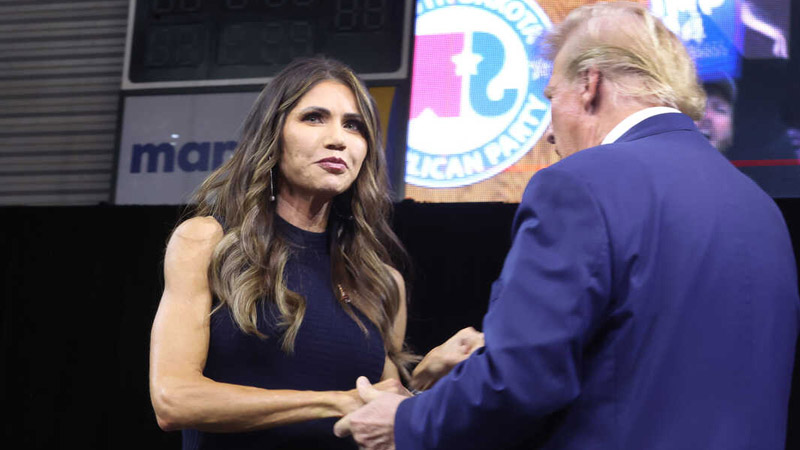The jury deliberations in the criminal hush money case against former President Donald Trump in Manhattan have sparked a significant legal debate. Trump faces charges of felony business fraud for allegedly concealing payments to adult film star Stormy Daniels, which Manhattan District Attorney Alvin Bragg contends was part of a scheme to manipulate the 2016 presidential election.
A specific portion of Judge Juan Merchan’s jury instructions has become a focal point of controversy. The instruction allows the jury to convict Trump of felony fraud without unanimous agreement on the underlying crime that elevated the fraud to a felony, as long as they unanimously agree he committed the fraud and that it meets the criteria for a felony.
This interpretation aligns with New York law but has drawn criticism from various supporters of the former president, including Gov. Kristi Noem (R-SD), who argue it is unconstitutional. Critics compare this case to a 1999 Supreme Court decision on a federal drug crime, claiming a discrepancy; however, legal experts point out that the appropriate precedent is the 1991 Supreme Court case Schad v. Arizona. In Schad, the Court upheld a murder conviction enhanced by a jury instruction that did not require unanimity on the basis for the enhancement to first-degree murder.
“Judge Merchan’s jury instructions are a direct violation of Richardson v. US, a decision that LIBERAL Justice Breyer wrote and CONSERVATIVE justices like Scalia and Thomas agreed with. Totally RIGGED trial!” wrote Noem on X, providing a passage from the court’s ruling that states, “The jury must be unanimous as to the ‘series’ of underlying offenses in a CCE prosecution. That is, the jury must unanimously agree not only that the defendant committed some ‘continuing series of violations,’ but also about which specific ‘violations’ make up that continuing series.”
The Court clarified that while a unanimous verdict is necessary on the criminal act itself, unanimity on how the act was committed is not required. Bradley Moss, a national security attorney and commentator, emphasized that the criticisms are misdirected and pertain to a federal statute, not applicable to this state-level crime. He highlighted the relevancy of the Schad decision to Trump’s case, reinforcing the legality of the jury instructions given.
“Now they have moved onto this other red herring. Richardson dealt with a specific FEDERAL statute. Not a state crime,” wrote national security attorney and political commentator Bradley Moss. He added that the correct precedent here is Schad v. Arizona, a 1991 case in which the Supreme Court reviewed a murder conviction that was enhanced by a similar type of jury instruction, where the jurors didn’t need to be unanimous on the basis for enhancement to first-degree murder. “Although a defendant is entitled to a unanimous jury verdict on whether the criminal act charged has been committed, the defendant is not entitled to a unanimous verdict on the precise manner in which the act was committed,” the Court wrote at the time.
The legal community continues to discuss the implications of this instruction, with reactions ranging from detailed legal analysis to more blunt critiques of the critics’ legal interpretations. Brett Chapman, a Tulsa-based attorney, starkly criticized Noem’s understanding of the law, emphasizing the need for accurate legal interpretation in highly charged political cases. As the jury proceeds with its deliberations, the debate underscores the complex interplay between law and politics, with the outcome of Trump’s trial poised to draw significant public and legal scrutiny.

